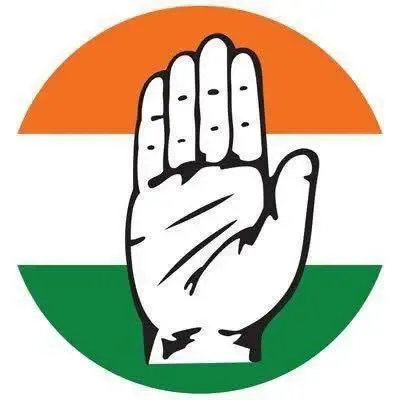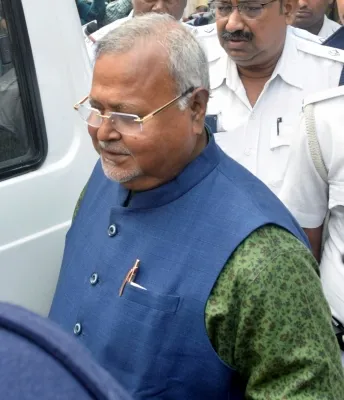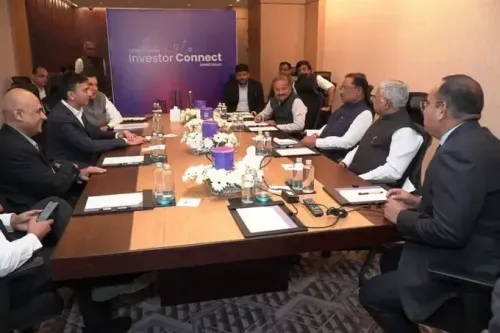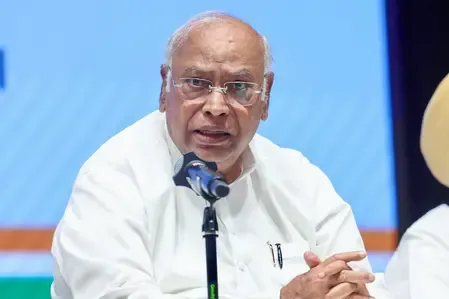Oil PSUs to Bear Excise Duty Increase on Fuels, No Effect on Consumers: Hardeep Puri
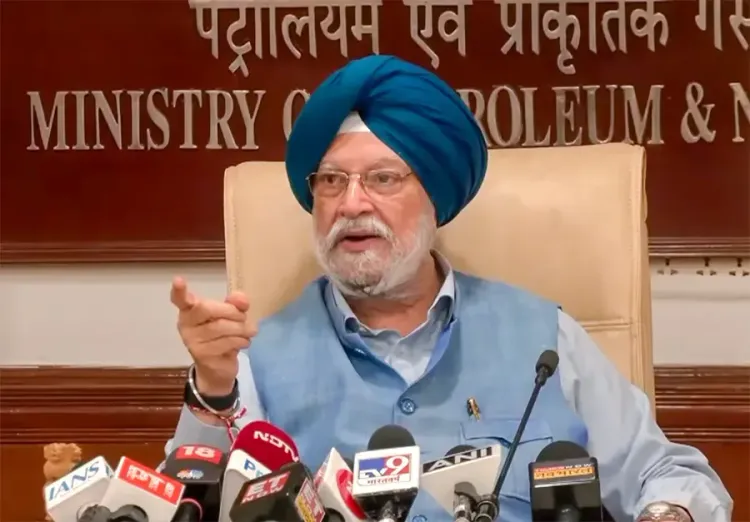
Synopsis
Key Takeaways
- Oil PSUs will bear the excise duty increase.
- Consumers won't face higher fuel prices.
- Input costs have decreased due to falling crude oil prices.
- The government prioritizes consumer welfare.
- Future price cuts may be possible.
New Delhi, April 7 (NationPress) The state-owned oil marketing firms will take on the burden of the recent excise duty hike on petrol and diesel announced by the Finance Ministry, as their operational costs have decreased owing to falling crude oil prices globally, stated Union Minister for Petroleum and Natural Gas Hardeep Singh Puri on Monday.
The Minister clarified that the Rs 2 per litre increase in fuel prices will not be transferred to consumers because the oil marketing companies, which include Indian Oil, Bharat Petroleum, and Hindustan Petroleum, are currently utilizing inventories derived from crude oil procured at lower rates. This enables them to absorb the extra tax load without elevating retail fuel prices, as the government is committed to prioritizing consumer welfare, he added.
Puri stressed that the government is conscious of fluctuations in the market and the necessity to balance the economic viability of oil marketing firms with consumer needs. He pointed out that with crude oil rates around $60 per barrel, there is even a possibility for future reductions in fuel prices if global trends continue positively.
The Finance Ministry has raised the excise duty on petrol and diesel to generate additional funds for social welfare initiatives and infrastructure investments aimed at stimulating growth while maintaining the fiscal deficit under control.
The choice to maintain stable retail prices while increasing resources for the national treasury is perceived by economists as a sensible strategy.
Economists view the government’s approach as being attuned to consumer demands while addressing the fiscal objectives set by the Finance Ministry.
Crude oil prices have dropped to a four-year low in the international market, with the benchmark Brent crude falling to $63 a barrel on Monday, marking the lowest point since April 2021, while the US West Texas Intermediate crude fell to $59.57. India, recognized as the world’s third-largest crude importer, stands to benefit from this decline.
The reduction in oil prices is advantageous for the Indian economy, which imports nearly 85% of its crude oil needs, as a drop in oil prices translates to a decrease in the country’s import expenses. This, in turn, lowers the current account deficit (CAD) and strengthens the rupee.
In addition to bolstering the external balance, a fall in oil prices also leads to decreased costs for petrol, diesel, and jet fuel in the domestic market, which helps alleviate inflation in the country.

